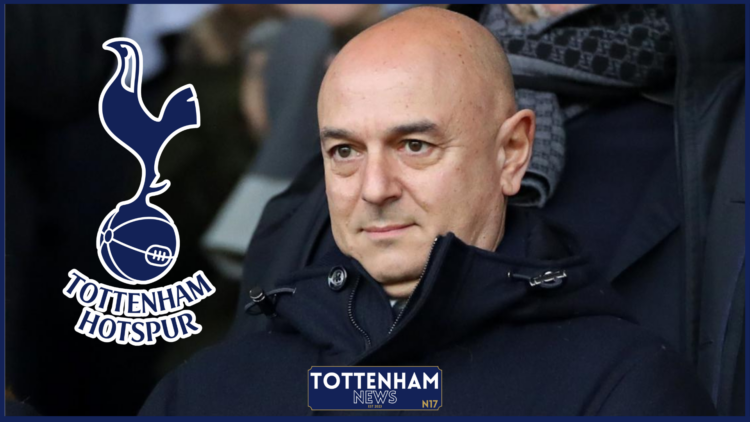Tottenham Hotspur Chairman Daniel Levy stands at a pivotal moment in the club’s history, with the potential to make one of the most significant moves since the club’s founding. With Tottenham currently valued at approximately £3.75 billion, Levy has the opportunity to leverage the sale of a stake in the club to catapult Spurs to new heights, both on and off the pitch.
For some time now, it has been no secret that Daniel Levy and ENIC, Tottenham’s majority owners, have been open to offers for a full or partial takeover of the club. Earlier this year, Levy confirmed Tottenham’s intent to seek investment, a move that has piqued the interest of several high-profile investors. The club’s self-appraisal at £3.75 billion highlights its ambition and the potential value that investors could unlock.
In July, Amanda Staveley’s PCP Capital Partners was rumored to be interested in buying into Spurs, yet little progress has been made since then. Various American private equity firms have also shown interest, with one group, MSP Sports Capital, reportedly conducting full due diligence with a view to a complete takeover. However, their focus shifted to Everton last year, and there has been no indication that they have renewed their interest in Tottenham.
Tottenham’s £3.75 billion valuation has presented a challenge for prospective investors, especially since a minority stake would not guarantee any operational control. Despite this hurdle, the cash generated from an equity investment could provide Tottenham with a unique opportunity to establish itself as a global football powerhouse.
If Levy successfully secures a substantial investment, potentially worth up to £750 million, it could be a game-changer for the club. The funds could be reinvested into various capital projects, including the acquisition of a new club, positioning Tottenham within the elite ranks of football’s multi-club ownership models.
The concept of a multi-club model has become increasingly popular among elite football investors, with Manchester City’s City Football Group and the Red Bull network serving as prominent examples. These organizations have leveraged their multi-club structures to pool resources, enhance global brand recognition, and create development pathways for emerging talent.
Tottenham has already shown interest in this model. The club previously explored a partnership with Djurgardens, the Swedish club from which they signed 18-year-old midfielder Lucas Bergvall. While the current status of these talks remains unclear, such a partnership would likely be more strategic than an outright equity investment.
However, with the potential capital from a new minority investment, Tottenham could aggressively pursue the acquisition of additional clubs, thus solidifying their position within the multi-club framework. The appointment of Scott Munn, a former Manchester City operator, as Tottenham’s Chief Football Officer, further signals the club’s intentions to embrace this strategy.
Tottenham’s majority owners, ENIC, are no strangers to the multi-club model. In the past, ENIC held stakes in several European clubs, including Rangers, Slavia Prague, AEK Athens, Basel, and Vicenza. However, as regulations tightened regarding the ownership of multiple clubs within the same competition, ENIC scaled back its involvement.
Now, with a renewed focus on expanding Tottenham’s global footprint, the multi-club model could offer significant benefits. By pooling certain costs across clubs and creating a strategic advantage in recruitment and talent development, Spurs could strengthen their squad while promoting their brand in new markets.
Adopting the multi-club model could provide Tottenham with several key advantages. First and foremost, it would allow the club to pool resources, reducing operating costs across multiple teams. This could include shared scouting networks, medical teams, and training facilities, leading to more efficient operations.
Moreover, a multi-club structure could enhance Tottenham’s global brand recognition. By acquiring clubs in different markets, Spurs could tap into new fan bases and increase their commercial revenue streams. This approach has been successfully implemented by Manchester City, whose global network of clubs has boosted their brand visibility and revenue.
Additionally, the multi-club model could serve as a development pathway for young talent. Tottenham could utilize their affiliated clubs to nurture emerging players, providing them with valuable playing experience before integrating them into the first team. This approach would not only enhance player development but also create a sustainable pipeline of talent for the club.

